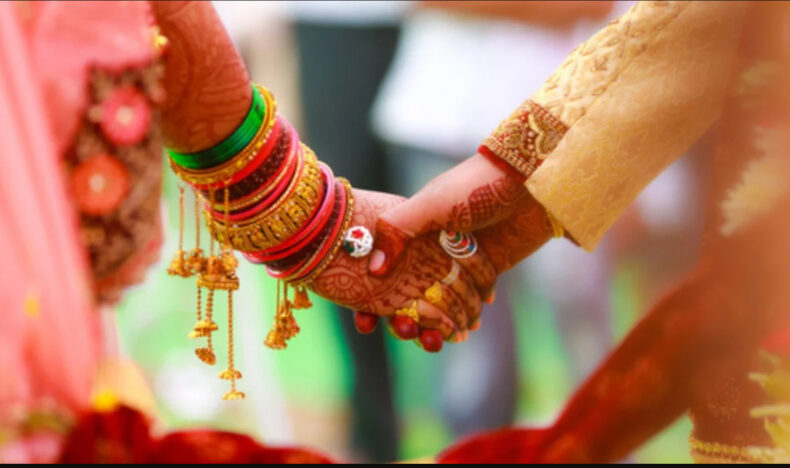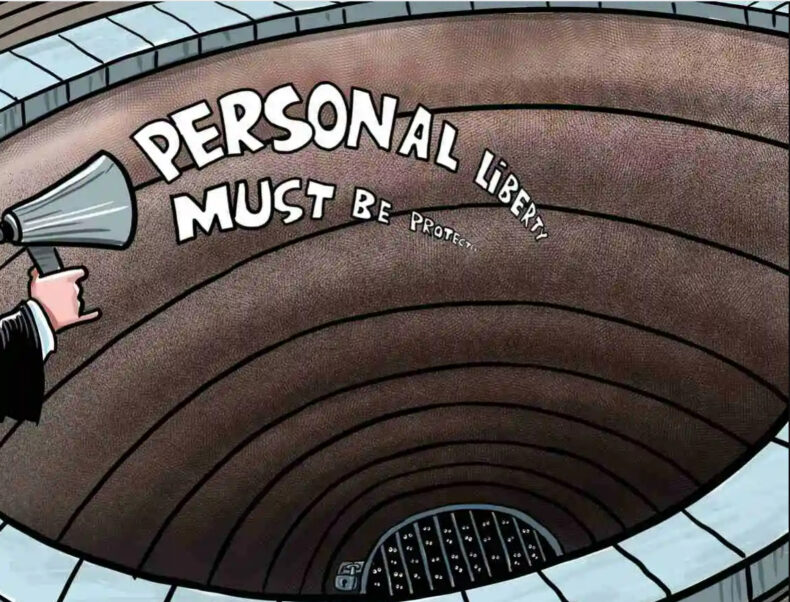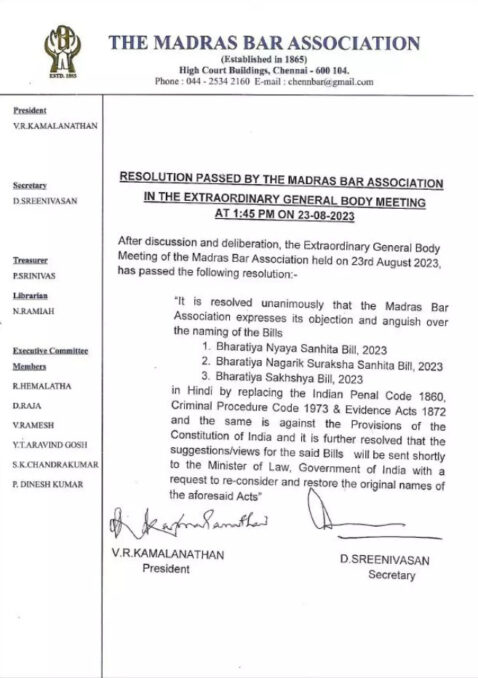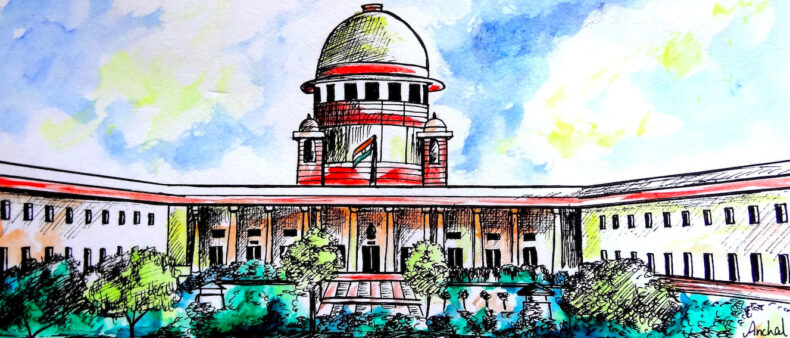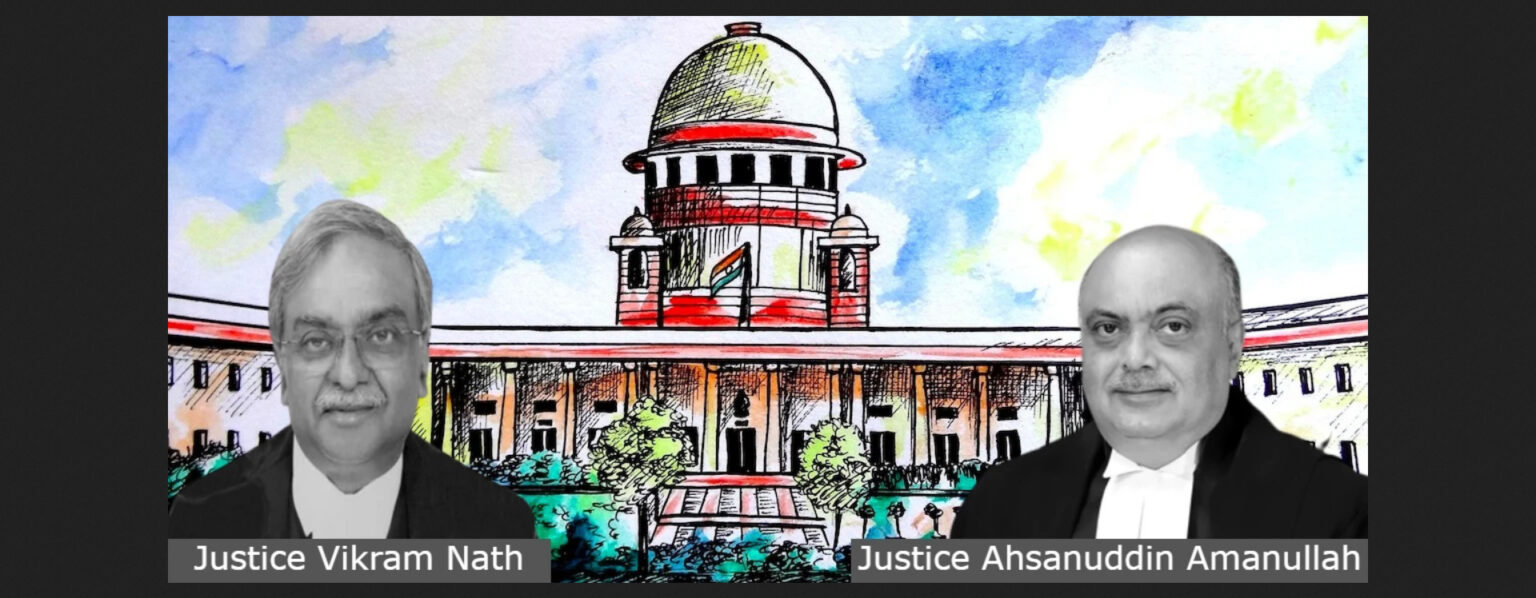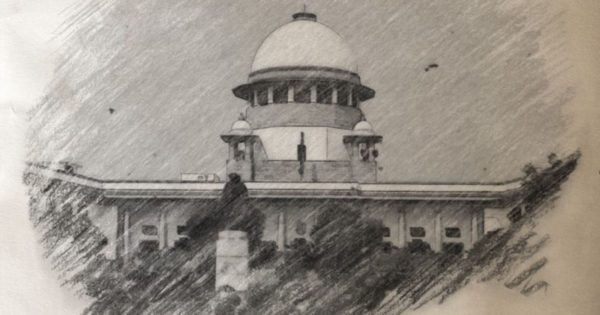Author: Harsh Srivastava
In a significant development, the Supreme Court has reaffirmed an individual’s fundamental right to choose a life partner, overturning a previous judgment by the Madras High Court. The apex court’s verdict, delivered on August 28, 2024, addresses the validity of marriages performed in the offices of advocates under the Hindu Marriage Act of 1955. Background and Legal Context The case before the Supreme Court revolved around the concept of self-marriage as outlined in Section 7A of the Hindu Marriage Act. This section, introduced through a Tamil Nadu Amendment, enables two Hindus to marry without adhering to traditional rituals or priestly…
The discourse delivered by Justice Siddharth Mridul of the Delhi High Court at the Centre for Discourses on Criminal and Constitutional Jurisprudence emphasized the crucial significance of personal liberty and the principle of presumption of innocence within the framework of the criminal justice system. The discourse shed light on the evolving nature of these principles, their historical context, and their relevance in contemporary democracies.
Justice Mridul’s address commenced with the assertion that personal liberty is a cornerstone of civilization, not just a modern concept. He traced its historical evolution from conflicts between subjects and monarchs to the present-day struggles between citizens and the executive branch in democratic societies. Protecting individual liberty remains a central obligation in a thriving democracy.
The principle of presumption of innocence was highlighted as the “elixir” of the criminal justice system by Justice Mridul. He discussed its progression from being recognized as a human right by the Supreme Court to its elevation as a fundamental right in India. This presumption, he argued, is vital not only for shielding the innocent but also for upholding the integrity of the legal process.
Justice Mridul delved into the emergence of constitutional guarantees as contemporary safeguards for personal liberty against state intervention. He explained that the act of guaranteeing liberty implies a higher authority that ensures it as a special privilege. The Constitution’s role in safeguarding personal freedom from legislative actions encapsulates the essence of this guarantee.
The discourse further explored the tension between the crime control model and the due process model. While the former emphasizes punishing the guilty and may lead to wrongful convictions, the latter prioritizes the rights of the accused, even if some guilty individuals go unpunished. Justice Mridul emphasized that both models share the common goal of punishing the guilty while safeguarding the innocent.
Justice Mridul underscored that the presumption of innocence is intricately linked to the concept of bail. He acknowledged the state’s interest in preventing serious offenses but argued that traditional bail rules are sufficient to achieve this goal. These rules necessitate a comprehensive assessment of factors such as the accused’s background, the strength of the case against them, and the gravity of the offense before granting bail.
In conclusion, Justice Mridul emphasized that every accused individual, irrespective of their charges, is entitled to the presumption of innocence and the fundamental principles of fairness enshrined in Article 21 along with Article 14 of the Indian Constitution. He cautioned against treating two offenders differently with regard to the presumption of innocence, as this would violate Article 14.
Justice Siddharth Mridul’s discourse served as a poignant reminder of the vital role that personal liberty and the presumption of innocence play within the criminal justice system. His insights underscored the delicate balance that legal systems must maintain between crime control and due process models. This discourse encourages law students and legal practitioners to champion the safeguarding of fundamental rights and uphold the principles upon which modern democracies are constructed.
The Madras Bar Association’s objection to the proposed renaming of crucial legal statutes marks a significant development in India’s ongoing debate over linguistic representation and adherence to constitutional principles. The association’s concerns primarily revolve around the proposed Hindi names for the Indian Penal Code (IPC), Code of Criminal Procedure (CrPC), and the Indian Evidence Act, which it believes could potentially violate the spirit of the Constitution.
The heart of the Association’s objection lies in the choice of names for these bills. The transition from English nomenclature to Hindi, while aimed at promoting linguistic harmony, has raised apprehensions about potential constitutional violations. The Association contends that renaming these laws in Hindi contradicts the Constitution’s provisions safeguarding linguistic diversity, cultural inclusivity, and equitable representation. This issue brings forth a larger concern about striking a balance between linguistic identity and constitutional values.
The Association strongly advocates for retaining the existing English names of these legal statutes. It argues that these names have become deeply rooted in the legal community and reflect India’s historical connection with English common law. This consistency in nomenclature supports effective communication within the legal ecosystem and maintains continuity in legal proceedings and scholarly discussions.
The timing of the bills’ introduction by Union Home Minister Amit Shah during the Monsoon Session of Parliament further adds to the complexity of the debate. These proposals are now in the hands of the Parliamentary Standing Committee, which will evaluate their alignment with constitutional principles. The fate of these proposed name changes hangs on the Committee’s recommendations.
This debate underscores the challenge India faces in reconciling linguistic diversity with constitutional values. While promoting Hindi as a unifying language is commendable, it must be done in a way that respects the nation’s rich linguistic tapestry. The Madras Bar Association’s objection highlights the significance of interpreting linguistic changes within the broader context of constitutional norms.
From a law student’s perspective, this situation offers a firsthand look at how legal principles, including constitutional ideals, can evolve over time. It showcases the interplay between language, culture, and the legal framework. Aspiring legal professionals can gain insights into how linguistic shifts impact legal practice and the justice system as a whole.
At the core of this controversy lies the Indian Constitution, serving as a guiding force that shapes the nation’s ethos. The Madras Bar Association’s objection emphasizes the Constitution’s role in safeguarding linguistic and cultural rights. This situation serves as a reminder that any legal transformation must be carried out while upholding the Constitution’s spirit.
In conclusion, the Madras Bar Association’s stance against renaming key legal statutes in Hindi reflects a broader concern about striking a balance between linguistic representation and constitutional harmony. The association’s call to preserve established English names underscores the importance of maintaining legal continuity while embracing linguistic diversity. As the bills await evaluation by the Parliamentary Standing Committee, India watches closely to witness how the nation navigates the intricate intersection of language and law, guided by the principles enshrined in its Constitution.
In a momentous ruling, the Supreme Court of India has once again asserted the vital principle of organizational autonomy regarding the determination of employees’ superannuation age. The case of “Central Council for Research in Ayurvedic Sciences v. Bikartan Das” has spotlighted the authority of institutions to set retirement ages, presenting a particularly intriguing context of parity with AYUSH doctors.
The essence of the dispute revolved around Bikartan Das, an employee of CCRAS, who pleaded for an extension of his retirement age to 65, citing his dedicated medical service. This plea was juxtaposed against the Union Cabinet’s decision to increase AYUSH doctors’ superannuation age. However, the court noted that this extension did not encompass autonomous bodies like CCRAS.
The crux of the interpretation hinged on the language of Clause 34 of CCRAS’s Bye-Laws, dissected meticulously by the Supreme Court. The court emphasized the term “or,” affirming the Council’s right to independently formulate superannuation policies, distinct from government norms.
Central to the verdict was the upholding of organizational autonomy in setting internal policies, particularly superannuation age. The court, while recognizing its role in curbing arbitrary decisions, underscored that organizations possess the ultimate authority in this realm. Justice Pardiwala highlighted, “The age of superannuation is always governed by statutory rules & other service conditions.”
The court also highlighted the dissimilar service conditions of Bikartan Das and AYUSH doctors. It dismissed the assumption that treating patients in diverse departments inherently merits parity in retirement age. The ruling reinforced the principle that parity should consider broader service conditions and recruitment nuances.
The ramifications of this ruling resonate widely, underscoring organizations’ autonomy in framing policies, including retirement age. It establishes a precedent for interpreting similar clauses in organizational bye-laws, possibly discouraging uniformity challenges that overlook contextual discrepancies. Moreover, the verdict fortifies the legal foundation for organizations to independently frame policies without adherence to government-established norms.
Ultimately, the Supreme Court’s judgment in the Bikartan Das case champions organizational autonomy in determining superannuation age. This landmark verdict extends beyond the specifics, encapsulating a fundamental principle that safeguards organizations’ freedom in shaping internal policies. Its echoes are destined to reverberate across industries, ushering in an era where organizations wield greater control over their core operations and identity.
In a significant development, the Supreme Court has agreed to hear the interim bail application of English professor Shoma Sen, one of the accused in the Bhima Koregaon violence case. The plea is based on the deteriorating health of Shoma Sen, who has been in jail since June 2018 under the charges of offences related to the Unlawful Activities (Prevention) Act, 1967. This case has attracted attention due to its connection with the 2018 caste-based violence that erupted in Bhima Koregaon, Pune, and alleged links with the banned Communist Party of India (Maoists). A two-judge bench comprising Justices Aniruddha Bose…
In a unanimous decision, the Supreme Court bench comprising Justices Vikram Nath and Ahsanuddin Amanullah meticulously examined the intricacies of the case involving Suresh Thipmppa Shetty and Sadashiv Seena Salian, who were convicted by a Trial Court for their alleged involvement in a murder conspiracy. The duo’s subsequent appeals were dismissed by the Bombay High Court, leading to their appeal before the apex court. Presumption of Innocence: A Cornerstone of Justice Supreme Court The court’s ruling underscores the cornerstone of justice: the presumption of innocence. This fundamental human right, which acts as a bulwark against arbitrary and wrongful convictions, demands…
Linkages between Municipality and Teachers Recruitment Scam In a recent development, the Supreme Court of India has dismissed a plea filed by the State of West Bengal challenging the decision of the Calcutta High Court to transfer the probe into the West Bengal Municipality Recruitment Scam to the Central Bureau of Investigation (CBI). The apex court bench, comprising Chief Justice DY Chandrachud, Justice JB Pardiwala, and Justice Manoj Misra, emphasized that there were prima facie indications of a connection between the municipality recruitment scam and the ongoing investigation into the teachers recruitment scam, which is being handled by both the…
Contact us:
online@asianatimes.com
Copyright © 2024 Asiana Times. All Rights Reserved







